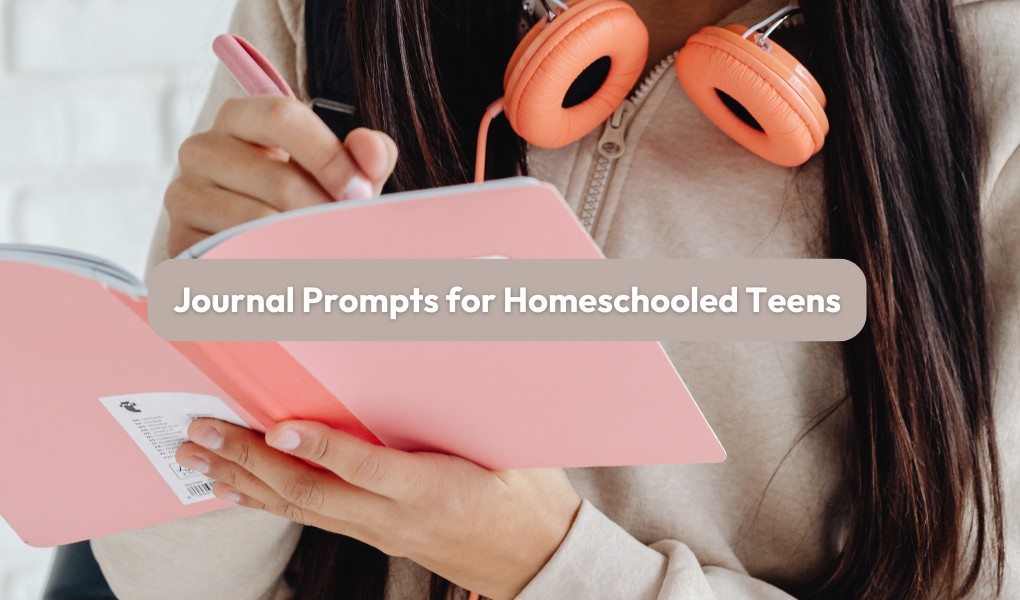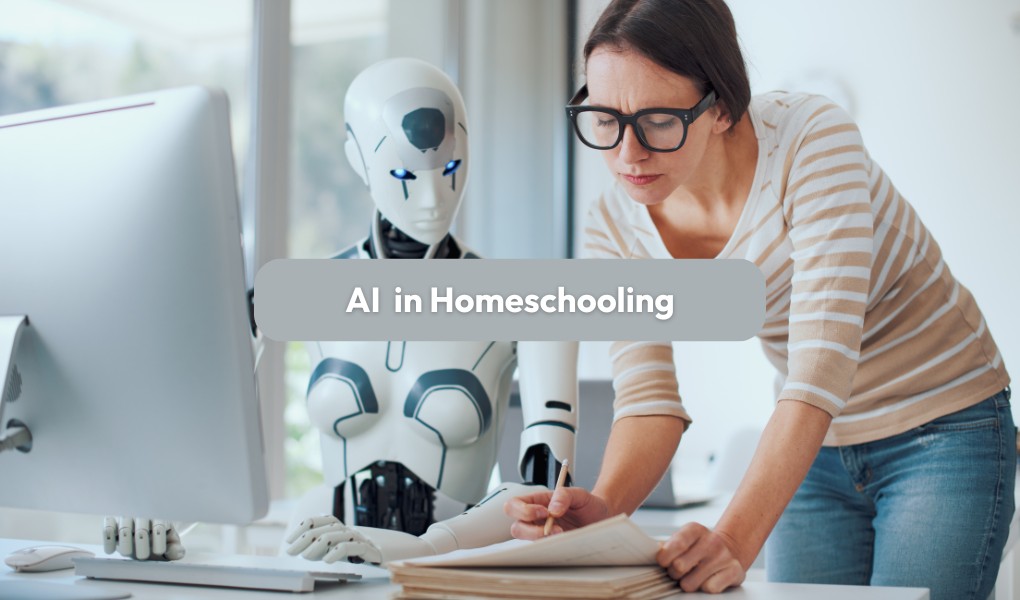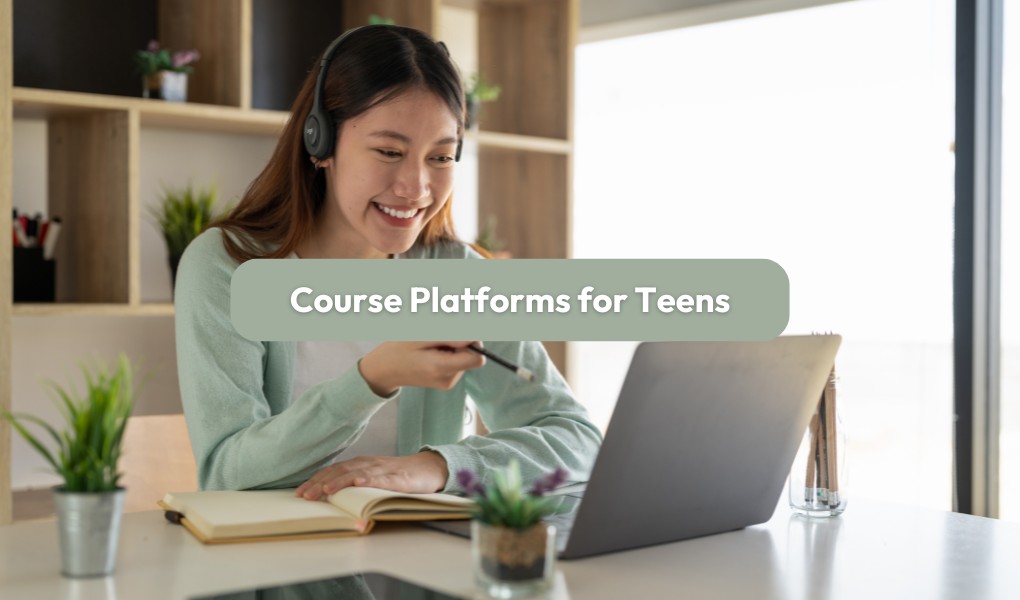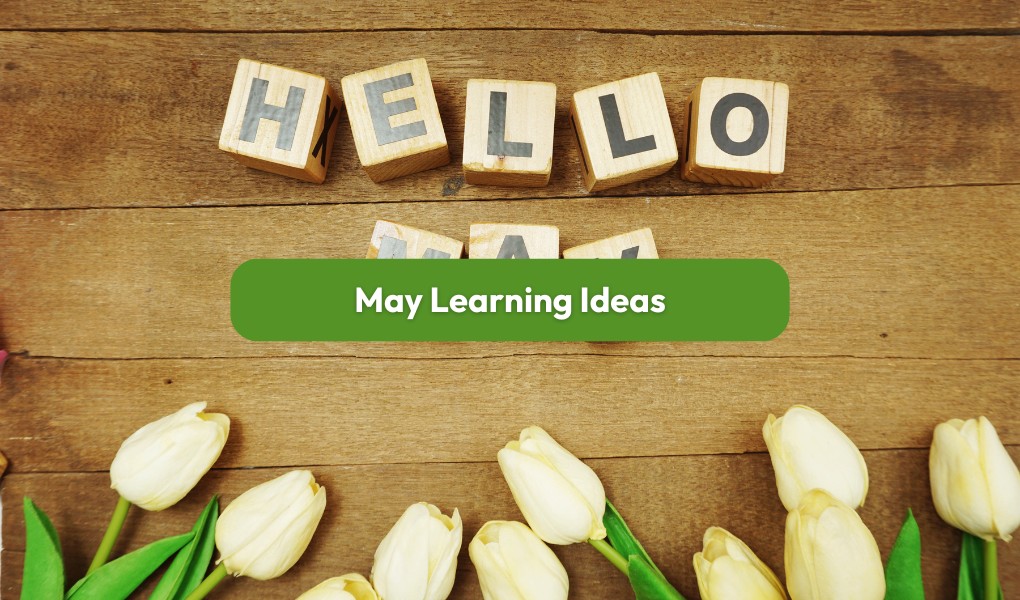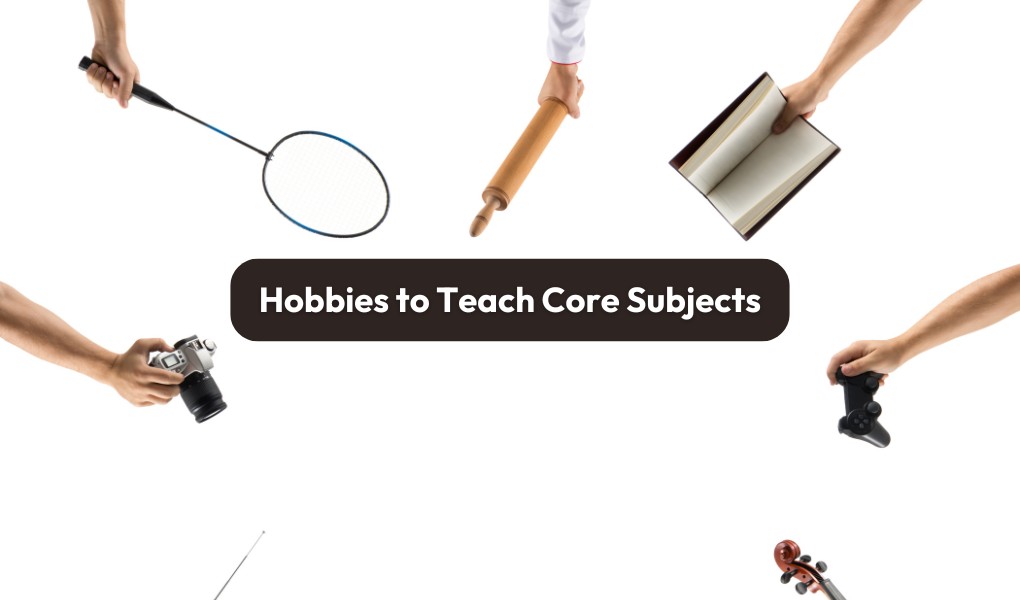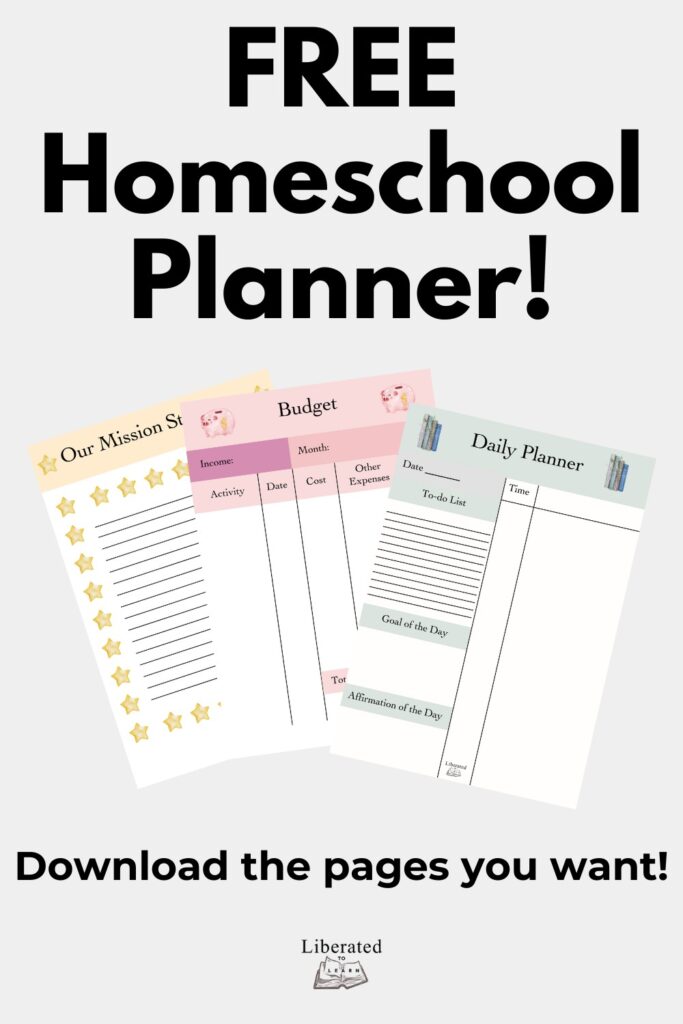What happens if you want to homeschool yourself? Is it possible? How can you do it? What are the pros and cons of homeschooling yourself? These are all questions that we’re going to answer for you.
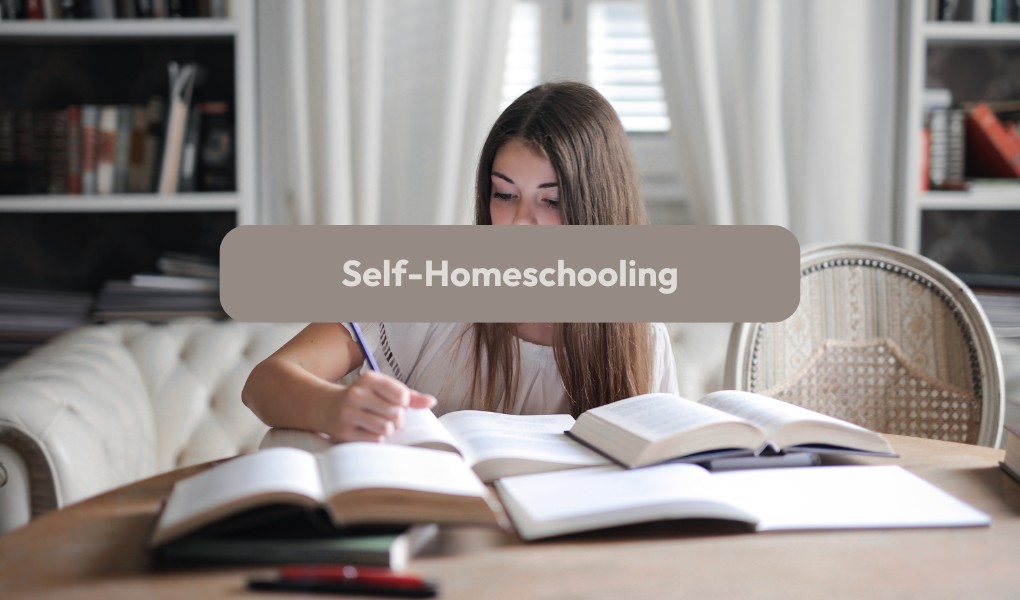
Contents
If you’re familiar with the terms ‘home education’ or ‘homeschooling’ you’ll probably know that you don’t necessarily need a teacher or need to be smart to homeschool successfully. But you’ll likely need guidance. Many of us strive for a more personalised learning experience and with homeschooling this is completely possible.
More and more people are realising that school isn’t the only option and it isn’t the norm either—we’ve just been made to believe it is. There is an alternative. In fact, there are many alternatives: homeschooling, unschooling, worldschooling . . . The list goes on.
But what happens if you want to homeschool yourself? Is it possible? How can you do it? What are the pros and cons of homeschooling yourself? These are all questions that we’re going to answer for you. Whether you’re an adult seeking further education or a teenager looking to take control of yours, this guide will explore the ins and outs of self-homeschooling, including how to homeschool for free and find resources, as well as what you can teach yourself.
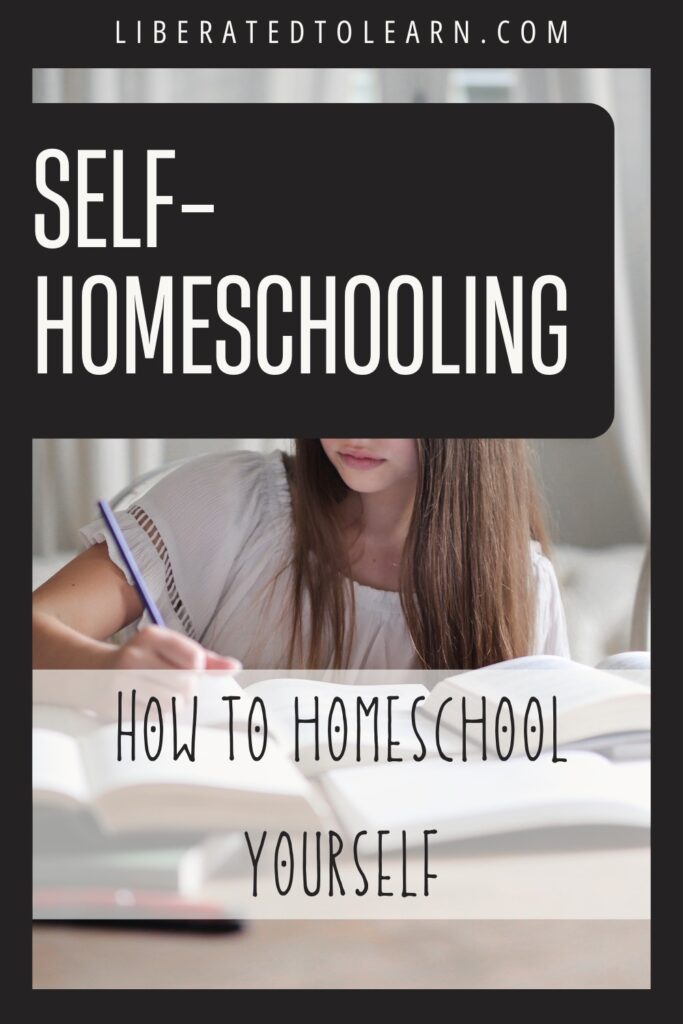
Can You Legally Homeschool Yourself (in the UK)?
The legal landscape for homeschooling yourself varies by country and region, and understanding your local laws is crucial. To homeschool means that parents take responsibility for their child’s education by acting as primary educators and facilitators. If you want to homeschool yourself and are under the age of 16, you’ll need an adult’s involvement, especially in certain aspects of home education. This includes:
- If you want to deregister from school: You’ll need a parent or guardian to write a deregistration letter to the school.
- Communication with your local education authority
There’s no definitive answer for whether you can homeschool yourself when you’re still of compulsory school age, but to prevent any unwanted hurdles it’s recommended that you always have the guidance of an adult to help support you.
There are various approaches to home education, such as unschooling, where children have the freedom to make their own decisions and learn without limitations. You could technically see this as homeschooling yourself but with the benefit of having your parent or guardian as a facilitator, ensuring that you keep on the right track.
For adults, the situation is different. Since compulsory education usually only applies to those under 18, adults are free to educate themselves without legal restrictions. Whether you’re looking to catch up on high school material or pursue a personal interest, you can homeschool yourself without needing to file any legal paperwork.
Is it a Good Idea to Homeschool Yourself?
Homeschooling yourself can be a great idea under the right circumstances. If you’re self-motivated, disciplined, and have a clear vision of what you want to learn, it might just be the best choice for you. If you’re struggling to decide whether homeschooling will be a good choice or not, here’s a breakdown for you:
It’s a good idea if:
- You’re an independent learner who can thrive without the rigid structure of a traditional school.
- You want to explore specific subjects and, more importantly, your own interests.
- You require a flexible schedule, either due to personal, health, or career reasons.
- You are an adult returning to education and prefer learning at your own pace.
It’s a bad idea if:
- You struggle with procrastination, time management, or self-discipline.
- You need regular interaction and feedback from people to stay engaged.
- You rely heavily on a structured learning environment to succeed.
- You feel isolated when working alone for long periods.
When deciding whether to homeschool yourself, the best thing to do is reflect on your personal learning style and your preferences. Also think about why you want to homeschool yourself and what makes the idea so appealing to you.
Remember, self-directed learning demands a lot of initiative. You’ll need to set realistic goals, stay motivated, and seek help when you encounter challenges.
Things to Know About Homeschooling Yourself
Before jumping into self-homeschooling, there are some useful things to know:
Accountability is key
Without a teacher or parent to hold you accountable, it’s easy to lose track of your progress or even lose motivation. There’s nothing better than making your own decisions, but you need to make sure you are making the right decisions. Being organised, setting goals and reflecting on your achievements can definitely help.
You need access to good resources
Finding the right educational materials can make or break your homeschooling experience. While it’s tempting to think everything you need is online, you should also consider going to libraries, using educational platforms, and having real experiences to help you learn.
You may miss out on traditional school socialisation
One downside of homeschooling yourself is the lack of interaction that you would normally have with your peers in a traditional school. You won’t have the same experiences as socialising in a class or during breaks with the same group of people. Instead you’ll need to actively seek out opportunities to socialise, either by joining other groups and clubs or online communities.
Understand your learning style
Not every person learns the same way. The key is to figure out which learning style calls to you. Before beginning, work out which type of learner you are. Are you a visual learner who might benefit more from watching tutorials or reading books? Or a kinesthetic learner who would prefer hands-on experiments?
Preparing to Homeschool Independently
Preparation won’t let you down when it comes to choosing to homeschool yourself. There are a number of things you can do to help prepare for your homeschooling journey:
Write down your educational goals
What do you expect to gain from homeschooling yourself and what are you hoping to achieve? Are you preparing yourself for further education or a specific career? Once you work out your short-term goals and your long-term goals, you’ll put yourself on the right track to achieving them. Just make sure they are realistic and attainable.
Work out how you will learn
Will you follow a curriculum or create your own? Is there a specific method of learning that appeals to you more? Everyone learns differently and in the beginning it might be a case of trial and error until you find out how you learn best.
Decide where you will learn
Will you set up a learning space at home, free of distractions? Or would you prefer a corner in the library, or even a co-working space? Wherever you decide to learn, make sure it’s comfortable and has everything you need.
Find your rhythm and routine
The key to homeschooling independently is finding your rhythm and getting into a routine which works for you. You could create a daily or weekly schedule, deciding what your day will look like and how much time you’ll dedicate to homeschooling.
You might be more productive in the morning or in the evening. Or you might want to homeschool around other commitments during the day. Whatever you choose to do, being consistent will definitely keep you focused. And you can always adjust your routine if you need to.
Find great learning resources
You won’t be short on learning resources as the internet is full of them, and lots of them are free too. All you need to do is pick a topic!
How to Homeschool Yourself for Free
If you’re worried about how much homeschooling might cost, fear not—you can do it for free or very little. Here are some ways you can access quality resources without breaking the bank:
1. Free educational platforms
There are numerous online platforms offering free courses and curriculums. Some popular ones include:
- Khan Academy: Offers complete, free courses in subjects like maths, science, economics, and history.
- EdPlace: A great platform for english, maths and science.
- The Open University: Offers hundreds of free courses.
- EdX or MOOC: Another platform which offers free online courses for everyone.
2. Public libraries
You can always rely on your local library for access to great books and the use of computers. Many libraries offer a wealth of resources and even workshops too.
3.YouTube videos
If there’s something you want to learn, it’s likely there’s a YouTube channel for it, whether it be writing or art, or something more niche-specific. A lot of learning platforms also have free YouTube videos, like Crash Course.
4. Podcasts and free audiobooks
If you’re an auditory learner and also love learning on the go, you’ll definitely benefit from listening to educational podcasts on Spotify or Apple. For audiobooks you could use LibriVox or Audible.
Things to Teach Yourself When Homeschooling Independently
If you choose to homeschool yourself, you might be wondering what you should teach yourself. Here are some things that you’ll probably want to focus on:
- Maths
- Science
- Language Arts
- History and Social Studies
- Critical Thinking and Problem-Solving
- Life Skills: personal finance, time management, communication . . .
- Creative Skills: art, music, writing
- Physical Health
Pros and Cons of Homeschooling Yourself
Pros:
- Flexibility: You have the freedom to design your own schedule, study when you’re most productive, and focus on subjects that interest you.
- Personalisation: You can learn at your own pace and make decisions based on your skills and interests.
- Cost-effective: With access to free resources, homeschooling yourself can work out cheaper than traditional education.
- Independence: You’ll develop self-discipline, time-management skills, and independent study habits, which are all invaluable.
Cons:
- Lack of structure: Without a traditional school structure, you may struggle with staying on track. It can be challenging to stay motivated without deadlines and the expectations of a teacher.
- Reduced social interaction: Homeschooling yourself can be isolating, and you’ll need to seek out social opportunities deliberately.
- Limited access to specialised resources: While many resources are available for free, you may not have access to specialised equipment or mentorship that traditional schools provide.
Deciding to Homeschool Yourself
Homeschooling yourself can be a daunting decision, but it’s also an exciting opportunity to take control of your education with the right support. You’ll have the benefit of incredible flexibility, allowing you to learn at your own pace and explore subjects that inspire you.
However, it also requires discipline, careful planning, and the ability to seek out resources and support when needed. To succeed as an independent learner, set clear goals, create a structured routine, and tap into free resources. Whether you’re a teenager looking for an alternative to traditional schooling or an adult returning to education, self-directed homeschooling could be the key to achieving your educational dreams!
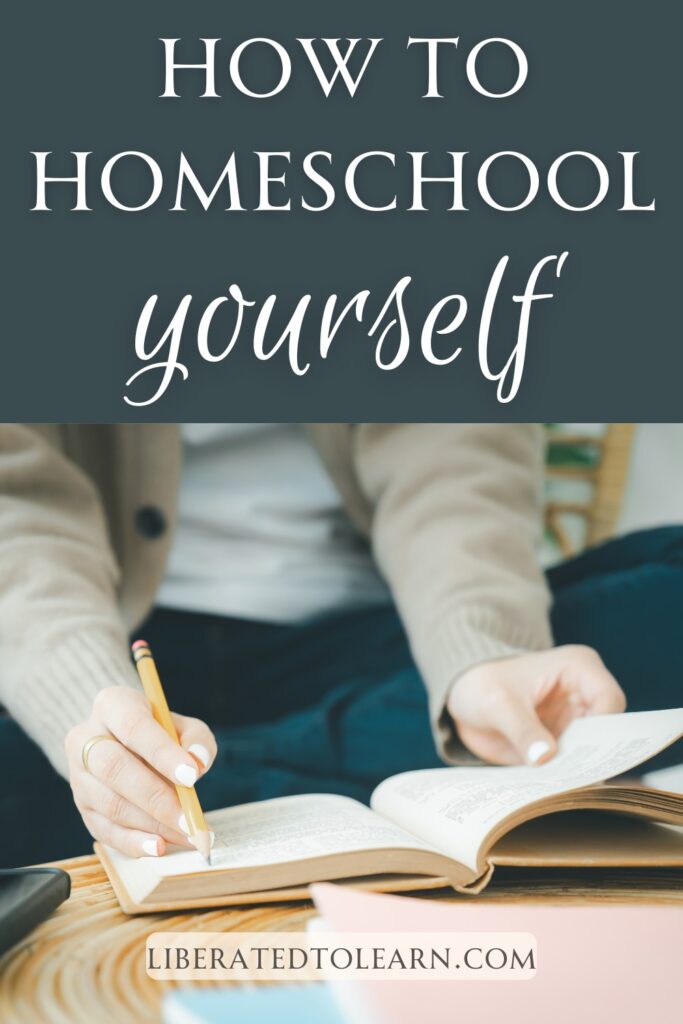
m@liberated
Want more from Liberated to Learn?
Subscribe to stay updated about new posts, resources and giveaways!




